A1 Tag Will Not: The Essential Guide to SEO

Search engine optimization (SEO) is the process of optimizing a website for search engines. The goal of SEO is to improve the visibility of a website in search engine results pages (SERPs). This can lead to increased traffic to the website, which can in turn lead to increased sales or other desired outcomes.
5 out of 5
| Language | : | English |
| File size | : | 2748 KB |
| Screen Reader | : | Supported |
| Print length | : | 9 pages |
| Lending | : | Enabled |
SEO is a complex and ever-changing field. However, the basics of SEO remain the same. In this guide, we will cover the essential elements of SEO, including:
- Keyword research
- On-page SEO
- Off-page SEO
- Technical SEO
- SEO measurement
Keyword Research
Keyword research is the foundation of SEO. It is the process of identifying the keywords that people are using to search for information online. Once you know what keywords people are using, you can optimize your website for those keywords.
There are a number of different tools that you can use to do keyword research. Some of the most popular tools include Google Keyword Planner, SEMrush, and Moz Keyword Explorer.
When you are ng keyword research, it is important to keep the following in mind:
- Relevance: The keywords that you choose should be relevant to your business and your website.
- Search volume: The keywords that you choose should have a high search volume. This means that people are actually searching for these keywords.
- Competition: The keywords that you choose should have a low level of competition. This means that there are not a lot of other websites that are competing for these keywords.
On-Page SEO
On-page SEO is the process of optimizing your website's content and structure for search engines. The goal of on-page SEO is to make your website more relevant and easier to find for people who are searching for information online.
There are a number of different on-page SEO factors that you can optimize, including:
- Title tags: The title tag is the title of your web page. It is displayed in the search engine results pages (SERPs). The title tag should be concise and descriptive, and it should include your target keywords.
- Meta descriptions: The meta description is a brief description of your web page. It is displayed in the SERPs under the title tag. The meta description should be informative and engaging, and it should include your target keywords.
- Header tags: Header tags are used to structure the content on your web page. The most important header tag is the H1 tag. The H1 tag should be used for the title of your web page. Other header tags (H2, H3, etc.) can be used for subheadings and other important sections of your content.
- Body content: The body content of your web page is the main content of your page. The body content should be informative and engaging, and it should include your target keywords.
- Images: Images can help to break up the text on your web page and make it more visually appealing. Images can also be optimized for SEO by using alt tags. Alt tags are brief descriptions of images that are displayed in the SERPs if the image cannot be displayed.
Off-Page SEO
Off-page SEO is the process of building backlinks to your website from other websites. Backlinks are one of the most important ranking factors for search engines. The more backlinks that you have, the more likely your website is to rank well in the SERPs.
There are a number of different ways to build backlinks to your website, including:
- Guest blogging: Guest blogging is a great way to get your content in front of a new audience and build backlinks to your website. When you guest blog, you write a blog post for another website. In the blog post, you can include a link back to your own website.
- Social media: Social media is a great way to promote your content and build backlinks to your website. When you share your content on social media, you can include a link back to your website.
- Outreach: Outreach is the process of reaching out to other websites and asking them to link to your website. Outreach can be done via email, social media, or other channels.
Technical SEO
Technical SEO is the process of optimizing the technical aspects of your website for search engines. The goal of technical SEO is to make your website faster, more user-friendly, and more crawlable for search engines.
There are a number of different technical SEO factors that you can optimize, including:
- Website speed: The speed of your website is a major ranking factor for search engines. The faster your website loads, the more likely people are to stay on your website and engage with your content.
- Mobile-friendliness: More and more people are using mobile devices to access the internet. Your website should be mobile-friendly so that it can be easily accessed and used on all devices.
- Crawlability: Search engines need to be able to crawl your website in Free Download to index your content. You can make your website more crawlable by creating a sitemap and using robots.txt.
SEO Measurement
It is important to measure the results of your SEO efforts so that you can see what is working and what is not. There are a number of different SEO metrics that you can track, including:
- Organic traffic: Organic traffic is the traffic that comes to your website from search engines. You can track organic traffic using Google Analytics.
- Keyword rankings: Keyword rankings are the positions that your website ranks for in the SERPs. You can track keyword rankings using a tool like SEMrush or Moz Keyword Explorer.
- Backlinks: Backlinks are links to your website from other websites. You can track backlinks using a tool like Ahrefs or Majestic.
SEO is a complex and ever-changing field. However, the basics of SEO remain the same. By following the tips in this guide, you can optimize your website for search engines and improve your visibility in the SERPs.
If you need help with SEO, there are a number of resources available online. You can also hire an SEO professional to help you with your SEO efforts.
5 out of 5
| Language | : | English |
| File size | : | 2748 KB |
| Screen Reader | : | Supported |
| Print length | : | 9 pages |
| Lending | : | Enabled |
Do you want to contribute by writing guest posts on this blog?
Please contact us and send us a resume of previous articles that you have written.
 Book
Book Novel
Novel Page
Page Chapter
Chapter Text
Text Story
Story Genre
Genre Reader
Reader Library
Library Paperback
Paperback E-book
E-book Magazine
Magazine Newspaper
Newspaper Paragraph
Paragraph Sentence
Sentence Bookmark
Bookmark Shelf
Shelf Glossary
Glossary Bibliography
Bibliography Foreword
Foreword Preface
Preface Synopsis
Synopsis Annotation
Annotation Footnote
Footnote Manuscript
Manuscript Scroll
Scroll Codex
Codex Tome
Tome Bestseller
Bestseller Classics
Classics Library card
Library card Narrative
Narrative Biography
Biography Autobiography
Autobiography Memoir
Memoir Reference
Reference Encyclopedia
Encyclopedia Regina G Richards
Regina G Richards Raphael Verkest
Raphael Verkest Susan Strauss
Susan Strauss Thomas Merton
Thomas Merton Tabitha Bree
Tabitha Bree Maximus Torison
Maximus Torison Michael Steinberg
Michael Steinberg Mauro Lucentini
Mauro Lucentini Michael Garlock
Michael Garlock Muhammad Zulqarnain
Muhammad Zulqarnain Saba Munir Ahmed
Saba Munir Ahmed Richard Zelade
Richard Zelade Matt Burns
Matt Burns Lyndsay Johnson
Lyndsay Johnson Suzi Schultz Gold
Suzi Schultz Gold Tony Roppon
Tony Roppon Randy Luethye
Randy Luethye Neal Simon
Neal Simon Scribes Of Sulterra
Scribes Of Sulterra Tanya Ovenden Hope
Tanya Ovenden Hope
Light bulbAdvertise smarter! Our strategic ad space ensures maximum exposure. Reserve your spot today!

 Foster HayesUnveiling the Evolution and Impact of Hip Hop: The Cambridge Companion to Hip...
Foster HayesUnveiling the Evolution and Impact of Hip Hop: The Cambridge Companion to Hip...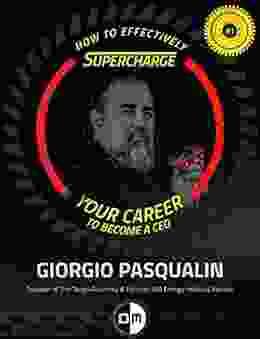
 Andres CarterBecome the CEO of Your Dreams: A Comprehensive Guide to Supercharging Your...
Andres CarterBecome the CEO of Your Dreams: A Comprehensive Guide to Supercharging Your... Emilio CoxFollow ·19.7k
Emilio CoxFollow ·19.7k Elmer PowellFollow ·16.1k
Elmer PowellFollow ·16.1k Ernest PowellFollow ·7.1k
Ernest PowellFollow ·7.1k Aron CoxFollow ·19.8k
Aron CoxFollow ·19.8k Vince HayesFollow ·15.9k
Vince HayesFollow ·15.9k David BaldacciFollow ·7.6k
David BaldacciFollow ·7.6k Trevor BellFollow ·11k
Trevor BellFollow ·11k Zachary CoxFollow ·5.5k
Zachary CoxFollow ·5.5k
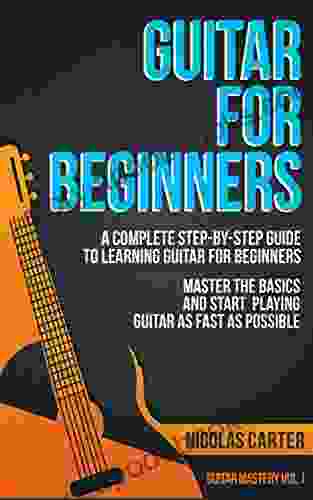
 Jorge Luis Borges
Jorge Luis BorgesUnlock Your Inner Musician: The Ultimate Guide to...
Embark on a Musical...
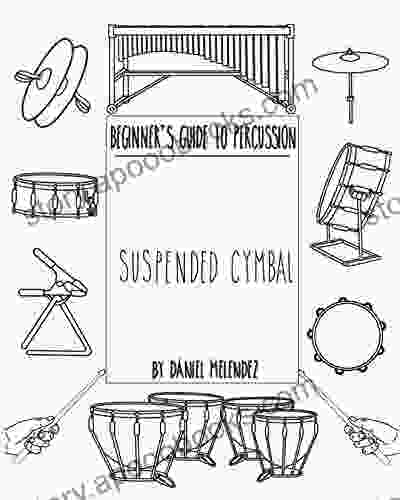
 Carlos Drummond
Carlos DrummondQuick Reference Guide To Percussion Instruments And How...
Unleash your inner rhythm with...
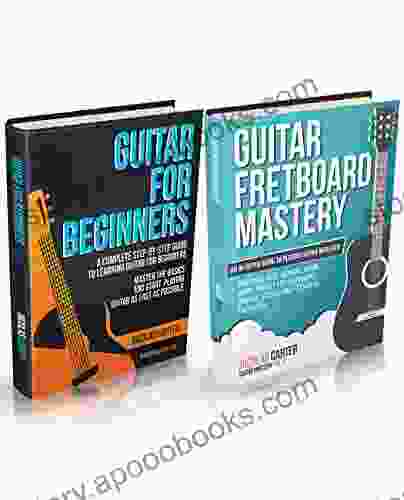
 Roberto Bolaño
Roberto BolañoUnlock Your Guitar Potential: The Ultimate Guitar Mastery...
Are you ready...

 Fred Foster
Fred FosterLooking for Lady Dee: A Punk Rock Mystery
By [Author's Name] Looking for Lady Dee is...

 Jacques Bell
Jacques BellJourney into the Mystical Realm of "Heaven Polly Alice...
In the tapestry of literature, where...
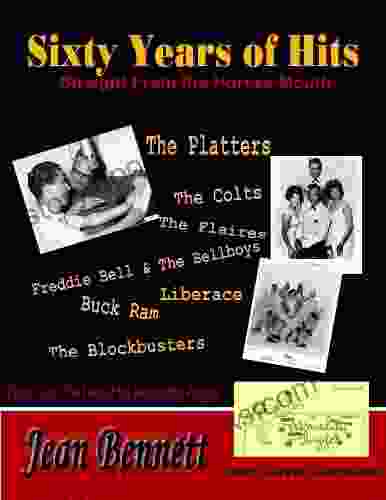
 Julio Ramón Ribeyro
Julio Ramón RibeyroSixty Years of Hits: A Musical Journey Through Time
Music has the...
5 out of 5
| Language | : | English |
| File size | : | 2748 KB |
| Screen Reader | : | Supported |
| Print length | : | 9 pages |
| Lending | : | Enabled |







